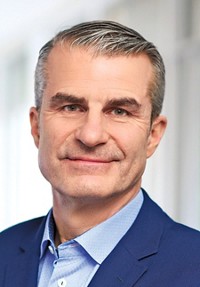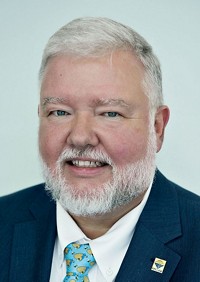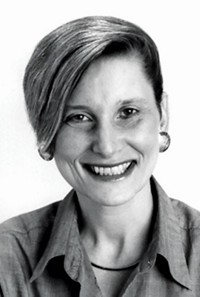Advertisement
Grab your lab coat. Let's get started
Welcome!
Welcome!
Create an account below to get 6 C&EN articles per month, receive newsletters and more - all free.
It seems this is your first time logging in online. Please enter the following information to continue.
As an ACS member you automatically get access to this site. All we need is few more details to create your reading experience.
Not you? Sign in with a different account.
Not you? Sign in with a different account.
ERROR 1
ERROR 1
ERROR 2
ERROR 2
ERROR 2
ERROR 2
ERROR 2
Password and Confirm password must match.
If you have an ACS member number, please enter it here so we can link this account to your membership. (optional)
ERROR 2
ACS values your privacy. By submitting your information, you are gaining access to C&EN and subscribing to our weekly newsletter. We use the information you provide to make your reading experience better, and we will never sell your data to third party members.
Policy
For Director-At-Large: Mary Jo Ondrechen
September 14, 2015
| A version of this story appeared in
Volume 93, Issue 36
Northeastern Section. Northeastern University, Boston
Academic record: Reed College, B.A. (ACS certified), chemistry, 1974; Northwestern University, Ph.D., chemistry, 1978
Honors: Outstanding Service Award, Interstate Technology & Regulatory Council, 2005; Outstanding Contributions Award, Interstate Technology & Regulatory Council, 2004; Excellence in Teaching Award, Northeastern University, 1989; Alfred P. Sloan Foundation Fellowship, 1987–91; NATO Postdoctoral Fellowship, 1980
Professional positions (for past 10 years): Northeastern University, professor of chemistry and chemical biology, 1990–
Service in ACS national offices: Committee on Minority Affairs, 2012–17, committee associate, 2011; Graduate Education Advisory Board, liaison, 2013; Presidential Task Force on Implementing Committee on Professional Training’s Diversity Report, 2009–10
Member: Member of ACS since 1974. American Indian Science & Engineering Society, Biophysical Society, International Society for Computational Biology, Protein Society, Society for the Advancement of Chicanos & Native Americans in Science. ACS Divisions: Biological Chemistry, Computers in Chemistry, Physical Chemistry
Related activities: American Indian Science & Engineering Society, board of directors, 2007–10, board chair, 2011–13; National Science Foundation, Committee of Visitors, Chemistry Division, 2007; Molecular & Cellular Biology Division, 2014, 2011; Interstate Technology & Regulatory Council, board of advisers, 2008–13; Current Bioinformatics, regional editor, 2007– , editorial board, 2005– ; Open Access Informatics Journal, editorial board, 2007–09; Telluride Science Research Center, Telluride, Colo., board of directors, 2005–07; North American Indian Center of Boston (NAICOB), board of directors, 1999– , board president, 2011– ; Open Chemistry Collaborative in Diversity Equity (OXIDE), advisory board, 2012–18; numerous invited and contributed technical presentations for the Biological Chemistry, Computers in Chemistry, Medicinal Chemistry, and Physical Chemistry Divisions and presidential symposia at ACS national meetings; published 17 articles in ACS and non-ACS journals, 2010–15
Ondrechen’s Statement
I have two major goals for ACS. First, ACS must position itself to remain a strong, vibrant, and respected organization in the future. Second, our organization must play a leadership role in addressing the biggest challenges faced by our country and by the world. To achieve these goals, we must recruit and retain members who are fully engaged and who find both professional and personal reward through active participation in ACS. We must also strengthen our message about the importance of science to a wide audience. Our strength and influence as an organization depend on our members.
Member retention and outreach must be high priorities. This requires engaging members in all career stages and in all sectors. Specifically, we need to improve efforts to involve younger chemists in all ACS activities, including governance, divisions, committees, and events. We need to provide services of value and activities that capture the interest of chemists in all sectors, including industry, government, nonprofit, and academia. Providing valuable service to our members in industry is of personal importance to me because many of my former Ph.D. students are now serving in industry in such areas as pharmaceuticals, genomics, and biotechnology. I want them to continue to be active contributors to our organization.
Broadening participation in the chemical sciences is the right thing to do; it is also in our own best interests. Since basic research is supported chiefly by public funds, public support for science is critical. People are more likely to support scientific research if they have some knowledge of science or if they have a personal connection such as a family member in science. To be at its strongest, our country must take advantage of our full talent pool; unfortunately we have not seen this happen yet. ACS needs to encourage and welcome a diverse pool of scientific talent in our organization. I am proud that we, particularly through the ACS Scholars Program and through engagement with science diversity organizations, have taken positive steps for diversity and inclusion. I want to see these efforts continued and enhanced. The science professions are still generally lacking effective strategies for broadening participation; ACS should take a leadership role in developing and establishing strategies that work.
We need to spread the message widely that research and scientific discovery are important initiators of economic growth and job creation. Promotion of investment in areas such as antibiotics, vaccines, cybersecurity, and novel threat detection technologies is essential for our future national security. The U.S. needs to retain its leadership position in medical diagnostics and treatments; chemistry is central to discovery and innovation in these areas. Innovative technologies in areas such as green chemistry, biofuels, energy storage, renewable energy, agriculture, and environmental remediation address current global problems in sustainability and also present tremendous opportunity for new business development and job growth.
Technology transfer of scientific innovation to the marketplace is critical to economic growth and to U.S. competitiveness in the global economy. ACS is in a position to disseminate information and to promote partnerships to help catalyze the development of new industries based on new technologies for the benefit of the country and for job growth in our profession. In addition, chemical education should include some component pertaining to entrepreneurship.
A little bit about Mary Jo Ondrechen: My background is in theoretical physical chemistry. I serve as professor of chemistry and chemical biology and as principal investigator of the computational biology research group at Northeastern University in Boston. We study how enzymes function, we develop predictive methods for functional genomics, and we work with medicinal chemists on drug discovery projects. We gave eight different presentations at the ACS fall national meeting in the Biological Chemistry, Chemical Education, Computers in Chemistry, and Physical Chemistry Divisions, and we have participated recently in the Division of Medicinal Chemistry. I am an experienced nonprofit board member, having served as the 2011–13 chair of the board of directors of the American Indian Science & Engineering Society. I also served for six years (2008–13) on the board of advisers of the Interstate Technology & Regulatory Council, a nonprofit organization that evaluates and facilitates the deployment of innovative technologies to solve environmental problems. My other passions besides chemistry include promoting science diversity, advocacy for the Native American community, and environmental advocacy.
Please see www.ondrechen.org for more information.
Candidates will not be notified of comments left on this webpage. To contact this candidate directly, e-mail m.ondrechen@neu.edu.






Join the conversation
Contact the reporter
Submit a Letter to the Editor for publication
Engage with us on Twitter